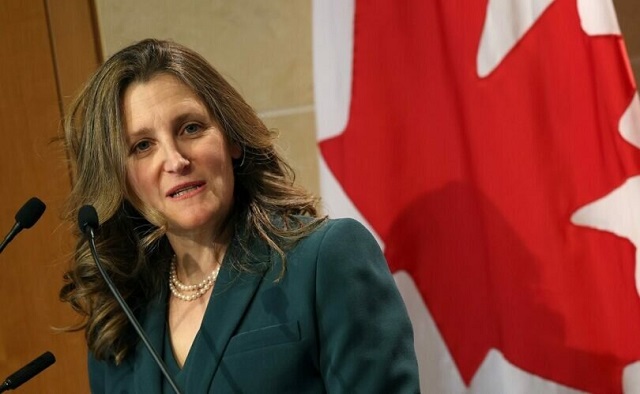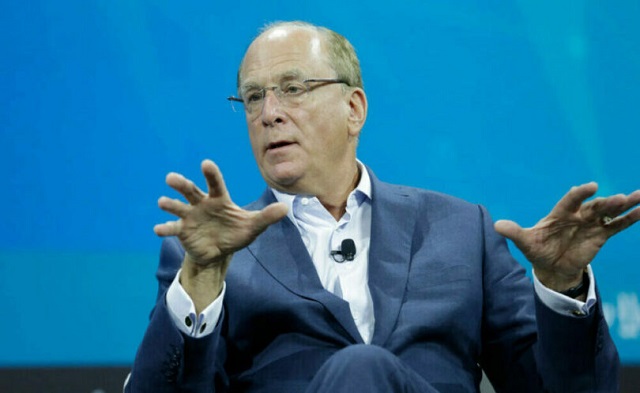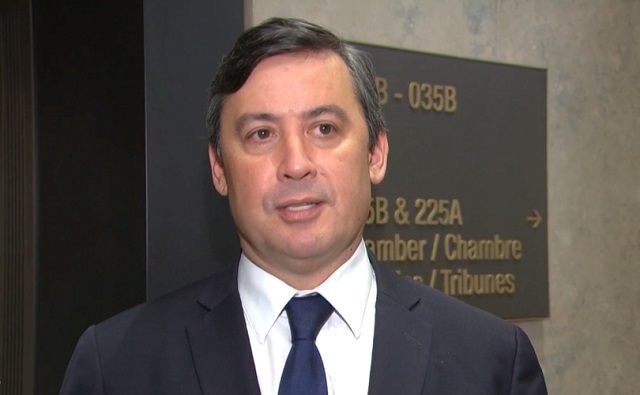Health
Dr. Vick gives his advice on the best age to see an Orthodontist

Dr. Vivek Cheba (Dr. Vick) is a certified specialist in orthodontics and the owner of Red Deer Orthodontics.
In this short feature, we ask Dr. Vick the question, “What is the best age to see an Orthodontist?”
What is orthodontics?
Orthodontics (also referred to as dentofacial orthopedics) is a specialized form of dentistry that focuses on the diagnosis, prevention, and treatment of dental and facial abnormalities.
Dr. Cheba grew up in Calgary and attended the University of Calgary for his Bachelor of Science, so he is no stranger to Alberta. Dr. Cheba was accepted into the dental program at the University of Manitoba, and after graduation remained in Winnipeg to practice general dentistry in a large group practice for five years. In 2009, Dr. Cheba returned to the University of Manitoba for his postgraduate program in orthodontics.
Click here to check out Red Deer Orthodontics.

Fraser Institute
Bill Maher is right about Canadian health care

From the Fraser Institute
Recently, popular American comedian and talk show host, Bill Maher, took aim at some of Canada’s public policy failings in one of his monologues. In entertaining fashion, Maher highlighted our high housing costs, unemployment rates and “vaunted” health-care system.
Indeed, citing work published by the Fraser Institute, he explained that after adjusting for age, Canada spends 13.3 per cent of our economy on health care (2020), the highest level of spending by a developed country with universal coverage that year. And that Canada has some of the poorest access to timely appointments with family doctors when compared to our peers.
Unfortunately, while that’s where his segment on health care ended, the bad news for the Canadian system doesn’t stop there.
On top of Canada continuing to be one of the most expensive universal health-care systems in the world, we get little in return when it comes to both available medical resources and wait times. For example, among high-income countries with universal health care, Canada has some of the lowest numbers of physicians, hospital beds, MRI machines and CT scanners.
And in Canada, only 38 per cent of patients report seeing a specialist within four weeks (compared to 69 per cent in the Netherlands) and only 62 per cent report receiving non-emergency surgery within four months (compared to 99 per cent in Germany).
Unfortunately, wait times in Canada aren’t simply long compared to other countries, they’re the longest they’ve ever been. Last year the median wait for a Canadian patient seeking non-emergency care reached 27.7 weeks—nearly three times longer than the 9.3 week-wait Canadians experienced three decades ago.
This raises the obvious question. How do other countries outperform Canada’s health-care system while also often spending less as a share of their economies? In short, their approach to universal health care, and in particular their relationship with the private sector, departs drastically from the approach here at home.
Australia, for example, partners with private hospitals to deliver the majority (58.6 per cent) of all non-emergency surgeries within its universal health-care system. Australia also spends less of its total economy (i.e. GDP) on health care but outperforms Canada on every measure of timely care.
Even with restrictions on the private sector, Canada has some limited experience that should encourage policymakers to embrace greater private-sector involvement. Saskatchewan, for example, contracted with private surgical clinics starting in 2010 to deliver publicly-funded services as part of a four-year initiative to reduce wait times, which were among the longest in the country. Between 2010 and 2014, wait times in the province fell from 26.5 weeks to 14.2 weeks. After the initiative ended, the province’s wait times began to grow.

More recently, Quebec, which has some of the shortest wait times for medical services in the country, contracts out one out of every six day-surgeries to private clinics within the publicly-funded health-care system.
Maher’s monologue, which was viewed by millions online, highlighted the key failings of Canada’s health-care system. If policymakers in Ottawa and the provinces want to fix Canadian health care, they must learn from other countries that deliver universal health-care at the same or even lower cost, often with better access and results for patients.
Author:
Health
Transgender activists are threatening the author of scathing UK report on child ‘sex changes’

Dr. Hilary Cass, author of the Cass Review, YouTube screenshot
From LifeSiteNews
That a female physician has been advised to stop taking the bus or the train because she might be assaulted by trans activists for attempting to protect children from a horrifying – and ongoing – medical scandal should be shocking to us all.
Dr. Hilary Cass, the 66-year-old physician who led the team behind the 366-page Cass Review, has become a target of trans activists as the repercussions of her findings reverberate through the political and medical establishment. The abuse is not confined merely to online; she has been advised not to use public transport for her own safety.
In an interview with the Times, Cass stated that critics of her report are putting children “at risk” by spreading “straight disinformation” and that criticisms, thus far, have been “completely wrong.” One Labour MP accused Cass of ignoring “100 transgender studies” in her findings. This, says Cass, is disingenuous in the extreme.
“I have been really frustrated by the criticisms, because it is straight disinformation,” Cass told the Times. “It started the day before the report came out when an influencer put up a picture of a list of papers that were apparently rejected for not being randomized control trials. That list has absolutely nothing to do with either our report or any of the papers.”
“If you deliberately try to undermine a report that has looked at the evidence of children’s healthcare, then that’s unforgiveable,” she continued. “You are putting children at risk by doing that.” The 100 papers that were allegedly “left out” of the report, Cass noted, were each individually examined by her team of researchers, who “pulled the results from the ones that were high quality and medium quality, which was 60 out of 103.”
Cass’s crime, of course, is that her report debunks the transgender narrative. She has been encouraged, she told the Times, by the impact of her report in many quarters – but the response elicited from trans activists has been “pretty aggressive” and she noted that the vitriol spiked each time the Cass Review reported something “people don’t like.”
“There are some pretty vile emails coming in at the moment,” she said of the profanity-laced digital missives coming her way. “Most of which my team is protecting me from, so I’m not getting to see them. What dismays me is just how childish the debate can become. If I don’t agree with somebody then I’m called transphobic or a TERF [trans-exclusionary radical feminist].”
When asked if the vitriol was wearing her down, Cass responded:
No… it’s personal, but these people don’t know me. I’m much, much more upset and frustrated about all the disinformation than I am about the abuse. The thing that makes me seethe is the misinformation. I’m not going on public transport at the moment, following security advice, which is inconvenient.
Indeed, six clinics, she said, refused to share research into the impact of puberty blockers – Cass called their reaction “coordinated” and “ideologically driven” and noted that “they were not particularly friendly to us when we approached.”
That medical institutions would refuse to cooperate on a study of the long-term impacts of the care they give to children is, any reasonable observer should agree, a very red flag – and there were more. Tavistock also refused to hand over data on detransitioners, which Cass called “very disappointing.” When asked about ideological capture, she told the Times that “there were certainly one or two individuals… who I would describe as activists among the staff,” although she added that “the majority of staff believed what they were doing was right.”
Although Cass will not be carrying out the recently-announced review of adult gender clinics, she did condemn GenderGP – which we have reported on in this space several times – for continuing to advertise and prescribe puberty blockers, noting that the “care” provided by Dr. Helen Webberley “certainly doesn’t come anywhere near anything one would recognise as adequate in terms of a proper assessment and exploration.”
That a female physician has been advised to stop taking the bus or the train because she might be assaulted by trans activists for attempting to protect children from a horrifying – and ongoing – medical scandal should be shocking to us all. The last few years have desensitized us to this sort of behavior. Fortunately, it appears that the Cass Review’s findings are having a seismic impact on the debate trans activists desperately tried to avoid, nonetheless.
-

 Housing2 days ago
Housing2 days agoTrudeau’s 2024 budget could drive out investment as housing bubble continues
-

 Censorship Industrial Complex1 day ago
Censorship Industrial Complex1 day agoDesperate Liberals move to stop MPs from calling Trudeau ‘corrupt’
-

 Alberta2 days ago
Alberta2 days agoAlberta government should create flat 8% personal and business income tax rate in Alberta
-

 National2 days ago
National2 days agoLow and middle income Canadians hit hardest by high marginal effective tax rates
-

 Great Reset2 days ago
Great Reset2 days agoTerrorists Welcome: Chronic counterterrorism lapses at the border demand investigation
-

 conflict2 days ago
conflict2 days agoCol. Douglas Macgregor: US is ‘facing disaster’ as it funds overseas wars while bankrupt
-

 Health16 hours ago
Health16 hours agoTransgender activists are threatening the author of scathing UK report on child ‘sex changes’
-

 Energy2 days ago
Energy2 days agoA Wealth-Creating Way of Reducing Global CO2 Emissions





